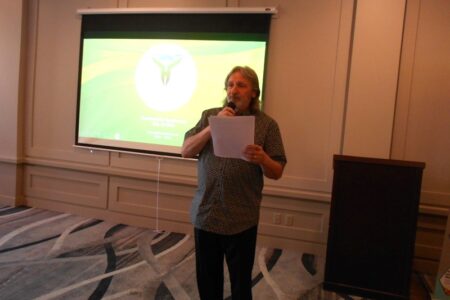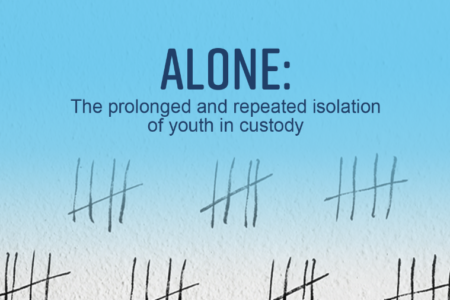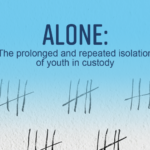Column: PART TWO -- Politics, the People, Wilson-Raybould
April Fools: update since Part One
Much to the chagrin of our Prime Minister I’m sure, this story adds weekly fuel to fires of controversy.
I must comment now about the recorded phone conversation occurring December 19 between JW-R and Michael Wernick. The recording was made by JW-R, unknown to Wernick, and was aired on March 29. Naturally, since JW-R knew she was recording, her part of this revealing conversation is articulate, forceful, and unambiguous, since she knew the record could be reviewed later by others — and her self-presentation was well-prepared. Wernick had no such knowledge and he comes off less well in the conversation. Trudeau is not part of the conversation but he too comes off badly in how the dialogue unfolds.
Of course JW-R is being subjected to critical observation for her unethical act of making a recording without the knowledge of Wernick.
Though the recorded conversation does not put Trudeau in a flattering light, neither does he look corrupt or crooked. Depending on one’s own judgement, the dialogue is or is not definitive evidence of political interference in the SNC-Lavelin prosecution by the prime minister’s office. He has said, and Wernick has corroborated, that Trudeau did not know the details of this specific chat.
Now Gerald Butts, who resigned after JWR testified, and then gave his own testimony, is reacting to JWR’s 41 pages of new information to the Judiciary Committee. He presented documents to support his version today, April 1st.
Long story short: summary of the events after JWR testimony
When I composed this column March 18 as one continuous tale, I wrote much detailed chronology, but now I’m skipping that.
I expect readers know that the Clerk to the Privy Council, Michael Wernick, testified, saying no interference occurred — and then announced his plan to resign soon after, when he realized the Opposition had no trust in him.
Gerald Butts, Trudeau’s good friend and PMO principal secretary, also resigned his post, then testified to the committee. Neither man was under oath, whereas JW-R was; the Liberal majority made that ruling. Butts hewed to the same line as Wernick: no inappropriate interference occurred. JW-R is absolutely not letting that narrative go unchallenged.
Official Opposition, officious predictability, tedious poses
The Opposition is baying for public inquiry and/or criminal investigation. Andrew Scheer wants Trudeau to resign. Adversarial political games are in play, and I will pay no attention to them, for they serve only partisan ends and not public good. If the RCMP decided to investigate, I would be amazed. The police are independent and will do what they think justified, and I cannot see them finding reason to invest in a criminal prosecution in these circumstances.
Adversarial politics are so predictably, numbingly tedious in the repetitive nature of the sound-bites offered up to us. Such political games are zero-sum contests of very limited value in improving Canadians’ lives or the society we create here. Personally, I doubt this story will change many voters’ minds about the party of their choice. Certainly not mine; I’m voting Green.
Voters are smart enough to separate noise from substance, and a great deal of this story is noise. It is about how politicians act, leaders lead, civil servants serve — and how the public reacts to the reports given us by media who decide what is news. It opens a window on how corporations might use power.
More sub-standard journalistic practice
As I write this, news media were treating a confidential source as a voice of truth when they ought to be skeptical. It is alleged that Wilson-Raybould and Trudeau were at odds two years ago over an appointment to the Supreme Court, the P. M. not accepting a recommendation made by her. JW-R denies the story, the judge in question asserts he was not available for the post, and no one is naming the source for this story. JW-R has in fact reacted with ire, saying “this has to stop” and questioning why the media report anonymous leaks.
Again, for my personal standards, this is low and unprofessional journalism, and yet the major news outlets were baying like hounds that they have an important piece of information, acting as if the story proves the two people in it were in conflict, when there is absolutely no substance to support saying that.
I am disgusted, as I was earlier by other media actions in this tale. I am corroborated and validated — by media behaviour around this “story” — in my low opinion of the people who tell us what is news. A lot of words, no named source, specific denial by the principals, nothing substantial: crap news. Media has to limit its news to minutes and column inches; some things must go unreported. When this crap is published for us, what more important items are not?
The media were recently giving notice to SNC-Lavalin’s reversal of their version of what the corporation communicated to Trudeau about job losses, after the CEO had denied he said anything about that. Apparently he did, and he has been publicly refuted by others in the company. Again: small items received too-large media treatment, and I despair that we are getting such weakly-evaluated journalism from our quality press and TV.
As I said, the great news-consuming public is not from whence correction of the quality of Canadian journalism will proceed, as I see it. The public lacks the wherewithal to subject the news media to critical evaluation. We deserve better journalism. We must demand it; that is concrete learning I recommend we take from this story. The “chattering classes” are not performing well yet it is this professional sector that must correct the media who are doing the job badly, for the great Canadian public is not educated to evaluate the material the purveyors of news feed to it. I say this as one who practiced journalism in my working life. It is extremely difficult for the public to force shoddy reporting to measure up to higher standards.
The immaterial and the political: why the JW-R story absorbs my focus
My personal, particular, peculiar fascination with these headlines – stories surrounding Jody Wilson-Raybould, Justin Trudeau, SNC-Lavalin, Gerald Butts, Michael Wernick, and Jane Philpott, motivated me to write about this topic — yet oftentimes I deliberately do not address current national news as the subject for my column. I made an exception here because for me, this story has so much of the intangible, immaterial, bewildering content only human beings and our peculiar individual minds and collective consciousness can create.
It has mystery, plot, and characters whose qualities we must scrutinize because they govern us.
The quality of Justin Trudeau as a leader is very much in focus in the story. His method of using go-betweens for communication with JW-R on a matter of huge significance, is revealed in the details, and he looks inept. He also looks unable to humble himself and accept not getting his own way. As JW-R is heard to say in her taped conversation, “he [Trudeau] gets the things he wants.” He is not willing to let JW-R leave the SNC matter alone, in the hands of the Prosecutor (Kathleen Roussel) who will not allow SNC to defer prosecution; Wernick tells her Trudeau is “firm” about his goal. She replies she is not changing her mind. And Wernick ends the conversation saying “well, that’s clear.” Finally, as she fully expected, the “other shoe dropped” and Trudeau demoted her January 11th.
Of course prime ministers have likely done worse than this, without our knowing. But Trudeau built his brand upon being open, sunny, transparent, and feminist. JW-R has earned my respect for bucking old precedents of not challenging a leader in private, then in public, and in taking her fight for principled, constitutional practice into the light of public media.
Trudeau once asserted that JW-R and Philpott could run as Liberals in the coming election, trying to appear statesmanlike. But that statement is no longer true, such was Liberals’ anger toward JW-R for releasing her secret recording.
Reflection: symbol, reputation, imagery, and pose
We live in the time of tribal loyalty immediately declared to millions on the internet. JWR has won hearts in cyberspace; the community of her supporters overlaps a great deal with a particular brand of feminism. It also owns a major portion of white liberals who feel guilty for white treatment of Natives in Canadian history.
I do not argue with their motives but I intensely dislike symbolism and I would like it if JWR were less symbolic. Justin Trudeau is the paradigm in our politics of symbolism over substance. He declared his feminism many times over the past five years. He has used words more than action to claim the brand of a white ally of Native causes. This story hurts him a lot just because it is a story replete with symbolism.
Feminists and supporters of Native causes have much to annoy them about the P.M. His progressive pose, his “virtue-signalling,” and his brand, proclaim: “I am cool. I am a feminist, anti-racist, and anti-colonialist. I want a just ‘nation-to-nation relationship’ between Canada and indigenous peoples. I alone can balance economy and environment.”
How much one thinks he has carried high-minded, idealistic words into solid, realistic deeds is a matter of one’s own judgement. By mine, he has failed in several important respects, especially environmental and indigenous issues.
Pondering human being and behaving: the perspective of History
Canadian citizens, like free people in other politically-defined communities, somehow create a national community within the arbitrary spatial boundaries of a (formerly colonial) state — built accidently, artificially, over a specific historic span of time. Here we try to govern ourselves with institutions, laws, and common culture, and here we express the national will for governance within a system of electoral democracy, party politics, and free expression of opinion in many media and at the ballot box.
I often ask myself, “Is our national community experiment working?” when I dissect Canadian public life. This tale provides matter worth studying as I attempt to answer my question. The Wilson-Raybould story cycle opens, for me, a window into Canadian public thought and behaviour in the political realm.
Honesty, integrity, exercise of power according to norms, the ego of political males*, and unpredictable elements of human personalities, are all front-and-center in the story. I asserted my belief in the first instalment that the effective meaning of the story will only be well-understood with historical perspective. I expect that by the year 2022, some estimation, some valid and substantial conclusions about the meaning of the story, will be possible. Until then, all commentary is provisional, transitory, prejudiced.
A “good person” in public life
One event more has added interest to the story since I wrote Part One. Jane Philpott has given a tortured interview to Paul Wells in Macleans magazine. I say the interview is “tortured” because Ms. Philpott so obviously is conflicted about the rightness of her going public with more comment, as Wells has revealed. She is aware of how her behaviour might hurt her party while she still claims to hold that party in high regard; the people in it, her parliamentary colleagues, are angry with her for pressing the P.M. to reveal yet more detail.
Jody Wilson-Raybould announced she has revealed final details in briefs to the parliamentary Justice Committee; the briefs have been made public. I have no expectation these are of such importance that the Liberals are in danger of losing an election over the issues JWR raised. Neither she nor Philpott want that, they declare, for they are certain Liberals are the best party.
Philpott is a Mennonite, a doctor, a person who did humanitarian work in Niger, Africa, before her late entry into Liberal party politics. She interests me because her religious grounding is so much a part of her notion of what are right acts and right words for her to express in public. As an elected representative for one constituency (Markham, ON) a party member and a parliamentarian, she feels torn in at least two directions.
The political effect of religion
When someone works in political arenas for a good they believe in, when they profess a religious faith within a society of secular, agnostic, materialist-scientific values, they are unusual. It is easy to dismiss a person with religious faith in politics as somehow suspect, because Christian history is so replete with bad examples of intolerant fanatic leaders responsible for horrid acts, from vicious crusades and witch burnings through sexual abuse by clergy and residential schools pursuing cultural genocide.
All my life I have found the intersection of personal spiritual-religious conviction with political activism a source of mystery and worthy of my investigation. It’s why Oliver Cromwell was the subject of much of my early research in history as an undergraduate at University of Guelph. Politics can be so grubby and reveal so much about human being and behaviour that is ignoble and disillusioning.
In Canadian history we have had some clear examples of politicians whose religious faith is central to their being, and their careers have been quite without any pattern to teach one about combining the practice of religious principle with a life in politics. J. S. Woodsworth, “Bible Bill” Aberhart, Pierre Eliot Trudeau, Preston Manning: these Christian men had quite distinct paths in our political history. Only Trudeau was a leader of first-rank status.
Can a person of religious faith overcome the prejudice against religion that is rife in modern Western society? Jane Philpott has made herself a person provoking that question. I am quite interested to see what happens to her.
Canada and the First Nations
I have to mention one fact I left out earlier – why did JW-R refuse to become Minister for Indigenous Services when it was offered to her? Because the holder of that cabinet seat administers Canada’s Indian Act and she has fought that Act most of her professional life as a lawyer supporting her people, she said. (She also has asserted that her distaste for the Indigenous Services Ministry was well-known before she was offered a post she would reject.) There is deep, deep history behind the Indian Act, worth much study. I will say no more here.
I think JW-R missed an opportunity; the Act has been left in our law for too long, and change is imminent and inevitable. View this part of the story here.
Each and every Canadian must learn about our history in this matter and understand just how natives perceive the past quite differently from we who have original roots in Europe. For background about the Indian Act, here is a great site to begin your research: https://indigenousfoundations.arts.ubc.ca/the_white_paper_1969/
https://www.ictinc.ca/blog/1969-white-paper-indian-policy-rejected-liberal-party-canada
Conclusion
The story isn’t final yet, but I’ll rest my critique.
Is JW-R unsullied and nearly-blameless in this whole story? Is our P.M. a poor leader, is he too partisan, is he dishonest, is he corrupt? Any conclusion is possible. I promote no conclusion here. I will let historical perspective do its magic, and draw lessons in a few years.
The Liberals won’t lose the election by the effects of this political tempest, nor should they. There’s simply not enough to convince a fair-minded judgement that the Prime Minister is unfit to lead his party or our nation.
If Jody Wilson-Raybould is a heroine of honesty against corruption in one person’s opinion, her behaviour is not seen in the same light by another. Her secret recording makes a unique impression on each citizen – is it ethical to do this to an unwitting person (in this case, Wernick)? Is it justified to keep a secret record when one is anxious for evidence to substantiate or defend one’s position in a conflict? Is Trudeau “a bad person” for being arrogant, shifty, self-centred, a poor communicator? – all of which qualities are prominently on display in this tale.
On the subject of corporations and their political effect on democracy: there is plenty of substance to study about the Canadian State and the Canadian corporate capitalist economy in relation to one another… if one cares to study it. I wish readers would do so.
By all means, Canadians, love your national community, believe in its democracy and its rule of law, but be realistic about the power of your vote. It is not sovereign. You govern yourself in many of the personal details of your life. But a ruling class rules you too, in contexts and structures of the human world you must live in, under capitalism, within hierarchies of power, amidst social inequalities and injustices you are individually powerless to alter.
Post-script
Personal Transparency: my prejudices
The Conservatives forget the kind of low parliamentary tactics their own leader, Stephen Harper, engaged in as P.M.; I don’t forget, and I’ve not forgiven that party for it. I do not endorse their reactionary policies, nor their base instincts. The party’s base is a sector of the Canadian electorate whose values I disavow and I regret that they are so well-entrenched in our West, here where I live. I am not, it must be said, a born Westerner. I came from Ontario in 1978.
I once admired the Reform Party; I was a member for half a year in 1988. I liked Preston Manning, the party founder, for his “the-West-wants-in” focus; this regional focus was lost. I did not want what happened to the Reform party: it merged with the Conservatives. Reformer Stephen Harper with the help of “Progressive Conservative” Peter McKay, created the Conservatives without the Progressive. What the party appears to hold as core values clashes with my own. I have too much baggage from a Marxian political past to fit in there.
Western Canada is conservative in some positive ways. But when it comes to backward-looking perspectives on raw-resource commodity-development capitalism, some loud voices in the West are completely out of harmony with my own priorities. Alberta, Saskatchewan, and Andrew Scheer’s Conservatives, can keep on trying to stop the clock, but the time for their vision of “development” has passed. It was apt in the 1950’s, but generally conservatives are at war with what the 1960’s brought to our society, whereas I feel strong loyalty for sixties ideals as I knew them in my youth.
Scheer is imprisoned by what Charles Eisenstein calls “the Old Story” of separation, control, and conquest over the natural world.
“Leave the tar in the sand, leave the trees on the land. End all fracking, send finance capitalists packing, let free water flow and wild animals go. Treat humanity as one family”: that’s my summary political poem for this present, perilous moment in human affairs.
Governance over towns, provinces, nations, the world, is inadequate to solve our multitude of challenges. Politics is limited; each of us has individual contributions to making the world better, and leaving it to “leaders” has not worked well for us, else the world would be less of a mess.
Two sayings sum up democratic politics aptly:
No matter who you vote for, government gets in.
People get governments they deserve.
* male politicians’ ego:
Read, please.
























